- Best Preservation of South Side Jazz
- Best Space to Escape and Get Back to Nature
- Best Healthy Fast Food
- Best Place to Channel Your Inner Artist
- Best Organic Connections Among Neighbors
- In Memoriam for the Best (and Oldest) Black-Owned Hoagy and Steak Shop
I bought this house twenty-two years ago in 1998 and I moved out in 2000 after I got married. We were having a child and I already had a child who was four and we decided to have a house built in Bronzeville. So in 2000, I moved to Bronzeville and rented out this house until I returned in 2018.
I’ll tell you a few things that I viscerally love about Avalon Park. When I first moved here, I was a single mom and my daughter was three. It was a neighborhood. It was a real neighborhood with tree-lined streets, established people, nosy neighbors who you want because they watch out, elders, kids, and families. It was a very welcoming environment to me, not to mention the housing was very affordable. That part hasn’t really changed in the eighteen years I’ve been away.
When I moved out of my house in 1998, my brother moved in and stayed for thirteen years. He loved the neighborhood so much he bought a house two blocks down the street. When he moved out I began fixing up the place. While fixing up the house, I let it remain vacant, allowing people to apply to rent. I can’t tell you how many people replied with interest in this unit because of the neighborhood. It is seen as a desirable neighborhood. It is quiet, by which I mean at night I go in my backyard and there’s no craziness going on. I can hear the crickets, I hear bugs. It’s wonderful.
The neighbor on the corner and the one next to him were so happy to see me come back because they were here when I bought the property. The neighbor on the corner was like, “Oh I saw somebody was moving in and I was wondering and I’m so glad it’s you! You know, we just never know.” People have a lot of pride around living in this neighborhood. I would say it is similar to Marynook and various areas in Chatham.
I look at things with a slightly different eye because I come from a family of licensed architects. So I look at the built environment, I look at housing stock, I look at community as well. My lens comes from my background in the arts—I have a degree in fine art. I have a twenty-five-year career as a collaborative community based muralist creating large-scale mosaic murals with community with neighbors, non-artists and artists alike. I don’t do that anymore, but I’m just saying this is the lens I look at the neighborhood with.
I know I’m kind of going on a tangent. I’m gonna circle back around. I’ve been gardening since I was sixteen and I love this backyard so much, like the one that we had in Bronzeville. I had garden parties there. I’d have friends come over and to help me garden, and I’d teach them mosaics. I’m loving my yard here; I’ve been back almost three years and I have all these vegetables growing. I give plants to my neighbors, teach them how to grow them. I found a Facebook group called Black Women Who Love Outdoor Spaces. It got me looking at my yard so differently and made me want to beautify my yard in addition to growing vegetables. So I start moving everything around. Now I’ve painted my deck, moved my barbeque grill, and put in AstroTurf. I was enjoying it so much this summer especially since we had to be at home because of COVID-19. When it got to the point where people were a little more comfortable, but also when I knew people were going stir crazy, I started thinking: I’ve got this yard, and it’s not just about me, community isn’t just about you. So I reached out to a few people I know and said “Hey if you all ever want to have any events in my yard, let me know. It’s no cost, I would love to host and share my love, my space.” These two young ladies who have a business together called Weaving The Thread, their background is in arts and culture but they focus on traumatic brain injury and trauma as well as medical racism. They had a peace circle in the backyard. It was beautiful. I opened my yard to a woman who I used to take Egyptian dance class with. We had our fifth class yesterday. Then Shani Smith of Black Cornerstones was telling me about these co-created spaces and I said, “Well, why don’t we do something in my backyard for the community?”
So that’s part of what this (garden party) was—I’ve never had a cold frame, I’ve never grown in the winter, but I am aware of it, I’ve looked into it. I have friends who have done it. I’ve been looking at this and I’m like, well, let’s all learn together and I’ll share what I know. And I’m sure there’s other people in the community that are assets just like me, who have stuff to share on the level of gardening as well as neighbors meeting neighbors.
So going back to Avalon Park, I’m saying all of this to say: I’m doing this right in my backyard. I talk with the lady on the corner, who keeps very much to herself and now is caring for her mother in her home. She doesn’t really get to garden like she used to. She told me a story. Right out my window, you can see an apartment building, a small apartment building maybe six to eight units. The landlord is not absentee—he comes, he works on the building, he’s present. So she had an opportunity to talk with him after apparently someone put some graffiti on a part of the building and he wasn’t doing anything about it. And so she had a conversation with him.
So right away he painted it. He doesn’t live in the neighborhood so his investment is financial. It didn’t occur to me until she said that, and I think that is a big part of the draw. You don’t drive through Avalon Park going, “They need to do something about that.” That’s one of the things I loved when I first moved here in 1998, when I bought this house. The large majority of people here are homeowners. There is a pride of ownership. People have pride in just their space, I see that in how people care for their property in Avalon Park, and that I really like. (Kiela Smith-Upton, as told to Rovetta McKinney)
Rovetta McKinney works in procurement in the interior design industry. Prior to that, she worked as a merchant/designer in the jewelry industry for over a decade. She has a Master of Science in International Marketing and a passion for arts and culture.
Best Preservation of South Side Jazz
South Side Jazz Coalition
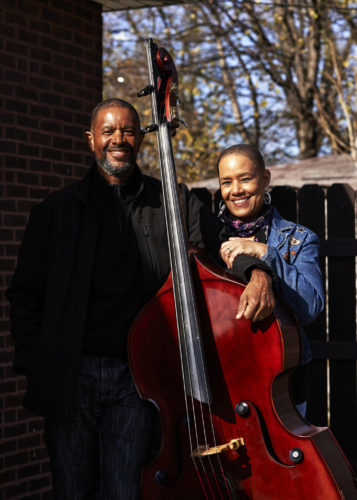
Founded in 2015 in Calumet Heights, the South Side Jazz Coalition was created to save jazz. By establishing partnerships in the city, the SSJC continues “the legacy of Chicago tenor saxophonist Earl LaVon Freeman’s free weekly jazz jam, which has been in existence for forty years,” according to its website.
However, this year SSJC decided to shift its focus to helping musicians stay afloat during the pandemic. Many jazz musicians were adversely affected by the shutdown, suddenly finding themselves without work as venues were forced to temporarily close to help stem the COVID-19 infection rate.
As a member of the city’s Cultural Advisory Council, Margaret Murphy-Webb, co-founder and executive director of SSJC, was able to get grants from the city Department of Cultural Affairs and Special Events, Arts Alliance Illinois, and the Safe & Peaceful Communities Fund, totaling $10,000. The grant money allowed SSJC to help put musicians back to work by hosting popup jazz concerts throughout the South Side, including shows in Calumet Heights, South Shore, and Greater Grand Crossing. These performances were well-received and proved to be mutually beneficial, providing musicians an opportunity to share their craft and audiences a respite from the realities of COVID-19. The events also gave people a chance to safely interact with and check in on neighbors—particularly elders that may not have had any interaction with others in months.
Audiences were treated to two hours of entertainment, with the largest event drawing seventy to eighty socially distanced people of every age, according to Murphy-Webb.
Additionally, SSJC provided food aid and personal protective equipment to families of musicians who had little to no existing income. They were able to help about forty families by providing them with monthly food staples worth up to a hundred dollars.
In September, they hosted a community jazz event at Saint Columbanus Catholic Church in Park Manor, encouraging people to register to vote and complete the census.
Though the South Side Jazz Coalition has positively impacted many, there is always more to be done. According to Murphy-Webb, the organization has exhausted the grant money and is open to donations. (Rovetta McKinney)
South Side Jazz Coalition. Contact Margaret Murphy-Webb at (773) 888-6709 or southsidejazzcoalition@gmail.com. southsidejazzcoalition.org
Best Space to Escape and Get Back to Nature
Jesse Owens Park
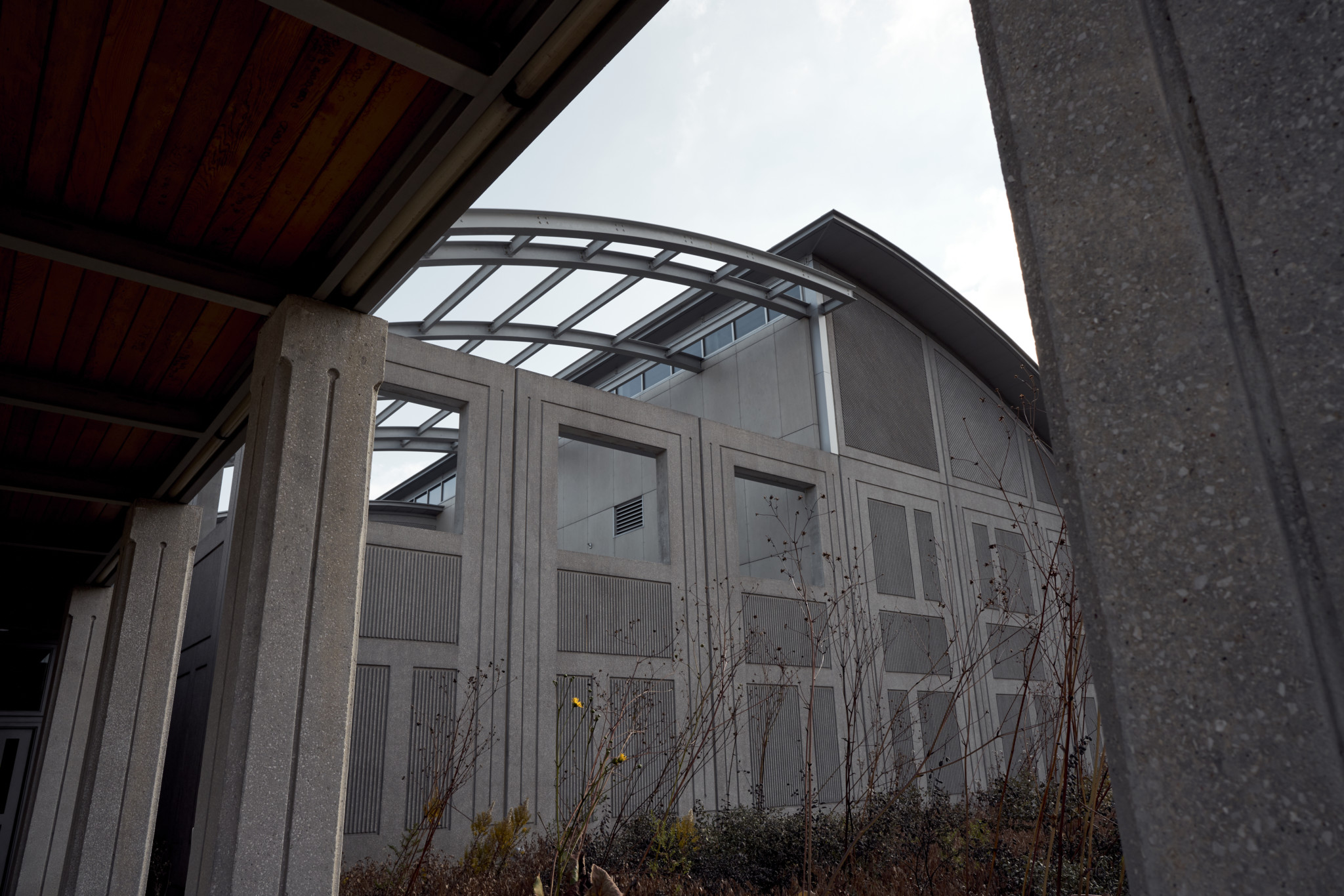
Originally named Stony Island Park when it was established in 1947, this lush eighteen-acre expanse of parkland was renamed in honor of Gold Medal-winning Olympic great Jesse Owens in the 1980s, at the suggestion of the Women’s Committee for a Chicago Black Athletic Hall of Fame, the 87th Street Businessman’s Association, and park district vice president at the time, Margaret T. Burroughs.
Despite certain areas of the park being closed in response to COVID-19, neighborhood residents can walk the perimeter of the park for exercise and visit the native prairie habitat Nature Garden.
Even with the playgrounds and play equipment currently closed, the park district’s afterschool program, Park Kids, serves ages six to twelve on weekdays from 2pm to 6pm, providing safe socially distant recreational arts and crafts, non-contact sports, wellness and nature-based activities. Registration is required and the cost is eighty-four dollars or free to eligible students. Jesse Owens Park offers a variety of remote fitness classes for seniors and others, including yoga, low impact aerobics and even kickboxing. Registration is required and some small fees apply. Navigating the Chicago Park District can be a bit tricky and a lot of information is hidden until you create an account, but once you do a whole new world of virtual activities opens. The staff are friendly and helpful if you should need to call.
When COVID restrictions are lifted, planning a visit to the park field house is a must. The modern LEED-certified building, constructed in 2009, has something for all ages to enjoy and would surely make Jesse Owens proud that it bears his name. The space includes a rooftop garden, solar panel energy, a newly furnished gymnasium, a fully equipped fitness center, multi-purpose rooms available to rent for private events, plus outdoor tennis courts, four baseball diamonds and five picnic groves. (Nicole Bond)
Jesse Owens Park, 8800 S. Clyde Ave. Park grounds are open every day, 6am–9pm. Due to COVID-19 restrictions, the field house is open only for restroom usage and the Park Kids program Monday–Friday, 9am–5pm. (312) 747-6709. chicagoparkdistrict.com/parks-facilities/owens-jesse-park
Best Healthy Fast Food
Plant Based Junkie
A challenging reality about living in the Avalon Park and Calumet Heights area is that, historically, there have not been many healthy restaurant options. This is a well-known fact by residents, who tend to work around it by patronizing establishments outside of the community.
I, too, never thought twice about getting in my car and driving anywhere in the city to get the food I wanted. But it was not until the pandemic forced us to stay home that I really took stock of the neighborhood and its dire need for more diverse food options.
Enter Plant Based Junkie, which was opened this February 19 by Bobbie Beaugard-Williams. This vegan restaurant provides comfort food to a community without many healthier fast food options.
Plant Based Junkie has effectively converted comfort food favorites to meat-free versions without sacrificing flavor. According to its website, the company takes pride in having the ability to satisfy their customers’ past carnivore urges, transforming them into “Junk Food Vegans.”
Prior to opening Plant Based Junkie, Beaugard-Williams, a native South Sider, worked as a bartender. Because of her hours, she found it difficult to find vegan or vegetarian food options, so she decided to experiment with different foods and brought her creations to her bar customers for beta testing—constantly receiving positive feedback, she told Block Club Chicago in March.
Plant Based Junkie’s menu consists of cleverly named food options, such as the Hot Mess burger (vegan cheese, grilled jalapeño peppers, grilled onions, vegan mayo, and sriracha) and the Filthy Philly (grilled green peppers, mushrooms, and onions, with melted vegan mozzarella), the restaurant’s vegan version take on one of Philadelphia’s most famous exports. (Rovetta McKinney)
Plant Based Junkie, 1635 E. 87th St. Tuesday–Saturday, noon–7pm; closed Sunday and Monday. (773) 902-7467. plantbasedjunkiechicago.com
Best Place To Channel Your Inner Artist
Calumet Heights Community Art Center
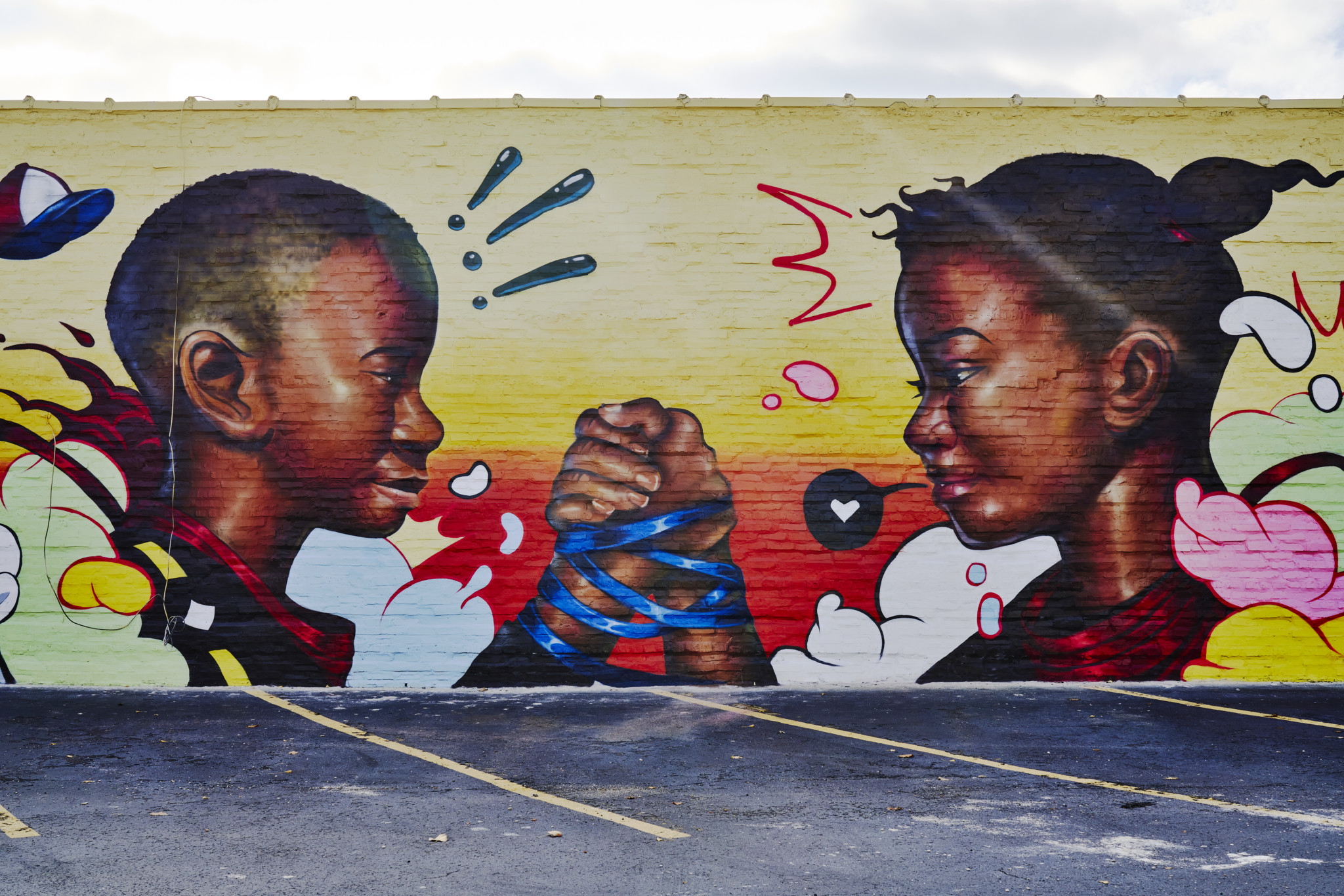
Anchored and run by the True to Life Foundation, a nonprofit founded by Velinda Alexander in 2002, the Calumet Heights Community Art center was developed to fill a void in the neighborhood with respect to the arts. Alexander, True to Life’s executive director, wants the center and the foundation to be a guiding light and of service to people in the community. She told the Weekly she wants to see people whole, happy, and thriving in a safe space. The Calumet Heights Community Art Center is that place.
Since 2017, the center has offered workshops for seniors, afterschool programs, summer day camp and early childhood resources, where each program fulfills its mission to promote competent, complete, and creative families through education, crisis intervention, and restorative programs.
During COVID-19 restrictions, the center opened its doors to offer a safe e-learning space for the children of essential workers. Along with daily e-learning, the students got to participate in a weekly art making program facilitated by local artists. The art projects range from clay and ceramic work to mosaic making.
The most recent mosaic work done by students, with instruction from artist Kathleen Power, uses tile, glass and mirrors and some of it will be installed on the center’s back wall to compliment one of the city’s most inspiring murals. “Light the Spark,” painted by artist Kayla Mahaffey, in partnership with the Southeast Chicago Chamber of Commerce and artist Abie Vasquez of Alpha Bomber Productions, is in an Afro-pop/Afro-surrealism design that has become a colorful beacon wrapping around the building to signal beauty, love, and unity throughout the neighborhood.
The Calumet Heights Community Art Center also features a bountiful youth-led garden with three grow beds where children learn how to cultivate vegetables from seed to harvest. The crops this season included hot peppers, green peppers, kale, lettuce, and cucumbers for everyone to enjoy and to share with seniors in the community. (Nicole Bond)
Calumet Heights Community Arts Center, 8828 S. Stony Island Ave. and True to Life Foundation, 1712 E. 87th St. Monday–Friday, 7:30am–4:30pm. (773) 374-7046. truetolifefoundation.org
Best Organic Connections Among Neighbors
Black Cornerstones Project
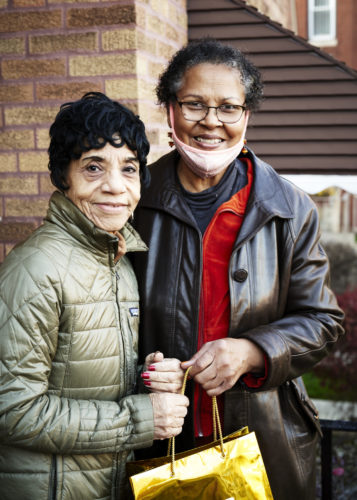
On the frigid afternoon of October 25, a group of fifteen to twenty neighbors hailing from Avalon Park, South Shore, Bronzeville, and Calumet Heights sat around in an Avalon Park backyard with cups of hot herbal mint tea or apple cider in hand, listening intently to a former community muralist teaching about cold frame gardening. Attendants ranged in age, were of varying gardening experience, mostly homeowners (both recent purchasers and long-established), and some apartment dwellers all sharing a common interest in residential year-round farming. This is what Black Cornerstones founder Shani Smith has in mind when she excitedly discusses “having residents co-create spaces to foster relational building blocks.”
The Black Cornerstones Project is a group of ordinary people co-creating bold and extraordinary spaces based in Calumet Heights. The organization is the brainchild of Smith, a neighborhood resident who believes a “community should call people in before they call them out.” Smith has a long history in community involvement as a non-violent direct action strategist and trainer; she has a background in social justice work and community organizing. Additionally, she was a former organizer for the Service Employees International Union and former block club president.
The organization has a two-pronged origin story. After prompting from the founder of Queen Up the Movement, a women’s empowerment group, Smith sought to plan a Black Girl Magic picnic as a community engagement activity during the early throes of the pandemic. However, with Chicago’s closure of public spaces, Smith pivoted to hosting the event in her backyard and the picnic was transformed into a backyard movie night, now hosted monthly.
After George Floyd’s death, a personal experience called Smith into action, and she officially formed the Black Cornerstones. In May, during the citywide uprising, Smith heard that the front window of her neighborhood T-Mobile store had been broken. Initially, she was shocked and couldn’t believe this was happening in her community. Then she asked herself “What can I do in this moment?” Smith immediately went to the T-Mobile store to protect it and to discourage people from looting by telling her neighborhood’s story. She got different responses—some positive, some negative—but they didn’t loot. Eventually, a gentleman pulled up and offered to help. One by one, neighbors started showing up to help clean while others painted sheets with positive messages, which were used to cover the store’s broken window. As night fell, however, they were unable to prevent the property from being ransacked. The incident still served as a turning point, and Smith knew something positive had to be done, so she decided to facilitate open spaces for the community.
Smith envisioned an environment that allows residents to co-create events around their existing interests and share it with others. For instance, if a person enjoys walking, they can create a walking club.
In recent days, Black Cornerstones’ events have taken the form of a walking group, an Art Walk held last month, a gardening club, and, of course, a monthly Backyard Movie Night. (Rovetta McKinney)
Black Cornerstones Project. Contact Shani Smith at (312) 647-5414 or shani831@hotmail.com. blackcornerstones.com

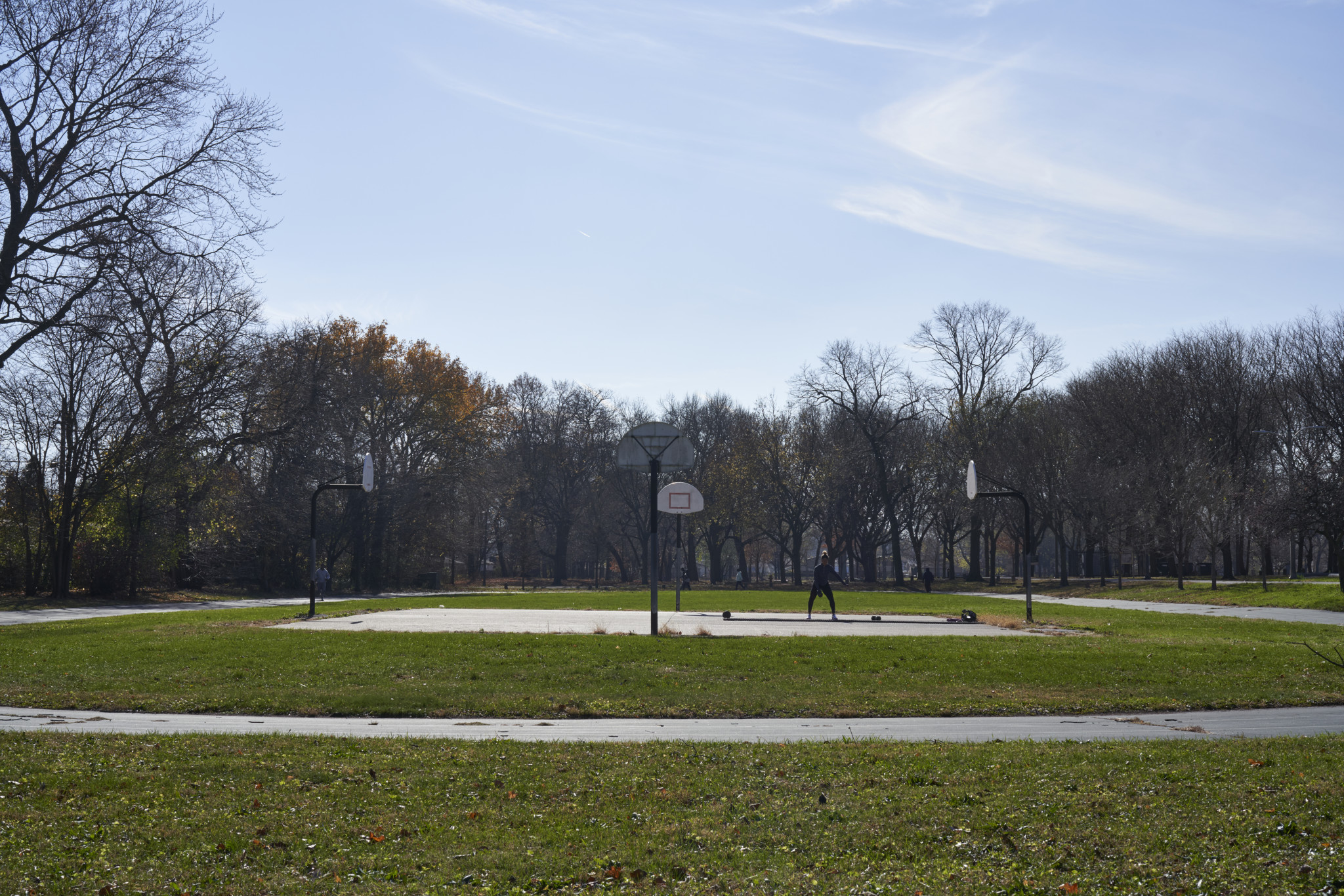
Ms. McKinney’s article was well written and informative. I loved the nuggets shared.
I enjoyed reading the article. It spoke of many of Shani’s truths. I believe this only the beginning of so much more to come from this very talented young Black Woman.
I was Born and Raised In Bronze Ville (Aka) The Low End I’m A very Senior ,Now I Live 2 Block ‘s From Where I Was Born Is There Anything Or Anyone Doing The Historical Legacies Of Our Neighborhood I Would Love To Talk And Help Tell Our Full Story Because Our History Is Very Important